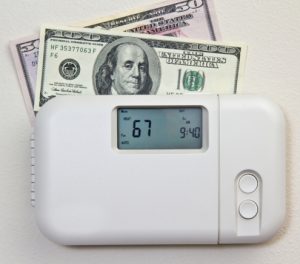HVAC Terms to Know
When you talk about HVAC service with some contractors, it can seem like they are speaking an entirely different language. Whether you need furnace repair, AC repair, or something else entirely, it’s important to know what your technician is talking about, so you can make an informed decision.
Berico makes it a point to talk to customers in plain language, but it’s still helpful to familiarize yourself with some of the commonly used terms in this industry. The definitions below should be a big help.
Ductwork
Starting with an easy one, ductwork is the metal conduits, usually square, that carry heated or cooled air through your home. If you have damage to your HVAC ducts, the air won’t circulate as efficiently, and you’ll be using more energy than necessary to get the results you desire.
BTUs
The acronym “BTU” stands for British Thermal Units, and this is a measurement used to quantify what a piece of HVAC equipment is capable of producing. A single BTU is the amount of energy required to boost the temperature of a pound of water by a single degree. If you are in the market for new HVAC equipment, you’ll likely see BTU ratings listed for various models.
Compressor
Essential to the functioning of an air conditioner, the compressor is a piece of equipment that adds pressure to a refrigerant as it moves through the system. If the compressor in your system fails, it won’t be able to cool air until it is repaired or replaced.
Filter
Playing a critical role in HVAC equipment for either heating or cooling, a filter is used to keep airborne particles from reaching your equipment and clogging things up. Changing your filter regularly is an important task.
Refrigerant
In an air conditioning system, the refrigerant flows through a line and moves in and out of a building. When inside, the refrigerant takes up heat energy and then carries it outside where it can be transferred to the outside environment. Then, the newly cooled refrigerant flows back into the building to pick up more heat and do it all over again. Sufficient refrigerant in the system is essential to get good performance out of your air conditioner.
Thermostat
The thermostat that controls your HVAC system is the brain of the operation, so it’s important that it is in good working order. Upgrading to a newer thermostat model could go a long way towards optimizing the performance of the system throughout the year.
Zone system
Rather than treating the whole home as a single zone, a zoned HVAC system is able to deliver different levels of heating and cooling to various parts of the house. In the end, you are left with a system that is more efficient than a single-zone layout, and you’ll be more comfortable on even the hottest and coldest of days.
Heat pump
The name of this type of HVAC equipment confuses some people, but it’s actually quite simple. A heat pump can work to either heat or cool a space, depending on the time of year and the weather outside. During the winter, the heat pump can augment the performance of a furnace to get better results while using less energy. In the summer, the heat pump serves as an air conditioner, pulling heat out of the house and bringing down the temperature.


 It’s the homeowner’s biggest fear: HVAC replacement. Whether your system unexpectedly quit on a hot summer day or your latest inspection by your HVAC technician did not bring good news, the most common question is always about HVAC cost.
It’s the homeowner’s biggest fear: HVAC replacement. Whether your system unexpectedly quit on a hot summer day or your latest inspection by your HVAC technician did not bring good news, the most common question is always about HVAC cost. As a new homeowner, you will want to be proactive to make sure that your HVAC system is kept up and running as efficiently as possible. Failure to do so will likely result in higher costs for HVAC repair in Burlington or worse, result in a failure of a system that might otherwise have given you years and years of great service.
As a new homeowner, you will want to be proactive to make sure that your HVAC system is kept up and running as efficiently as possible. Failure to do so will likely result in higher costs for HVAC repair in Burlington or worse, result in a failure of a system that might otherwise have given you years and years of great service.